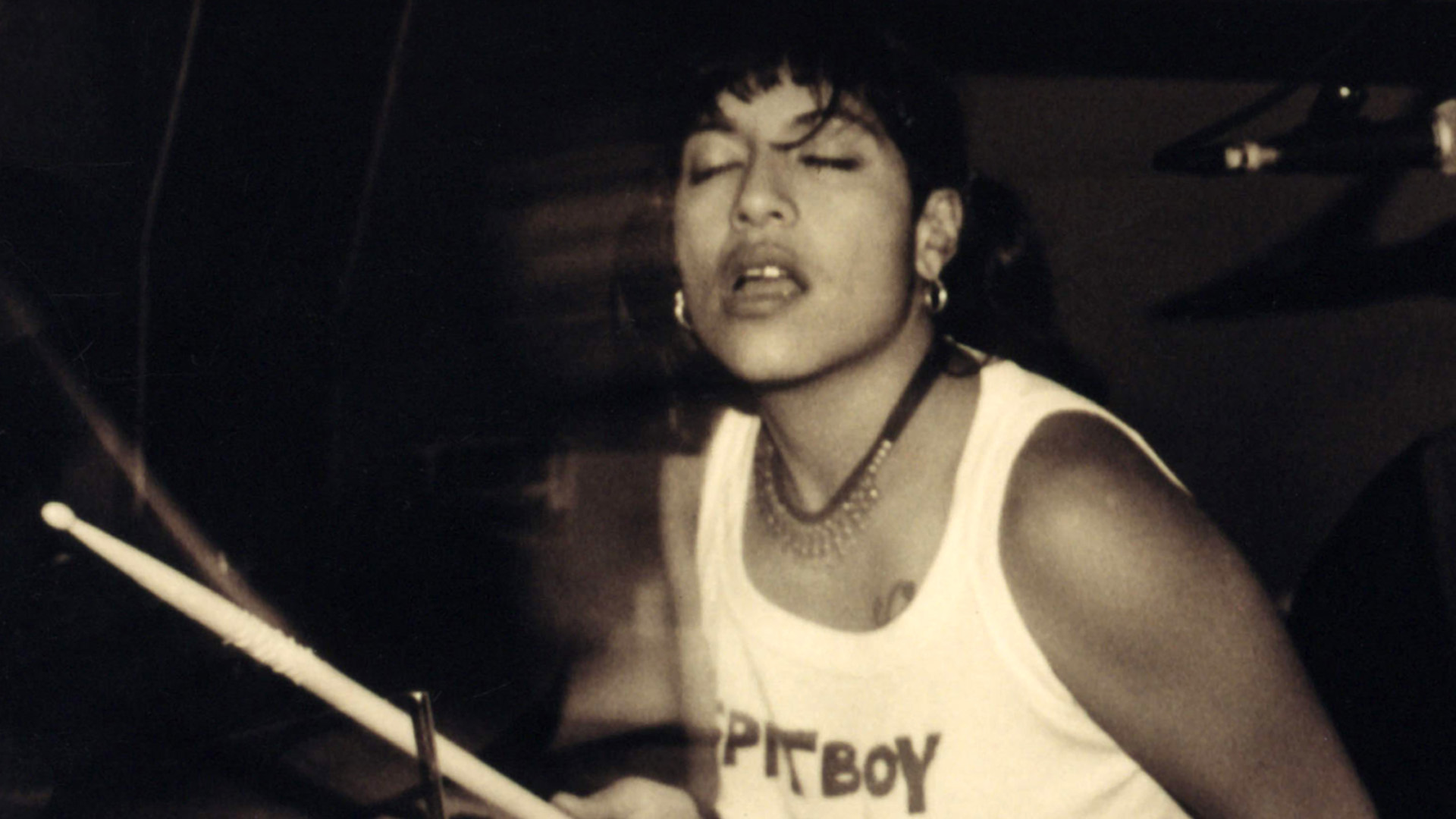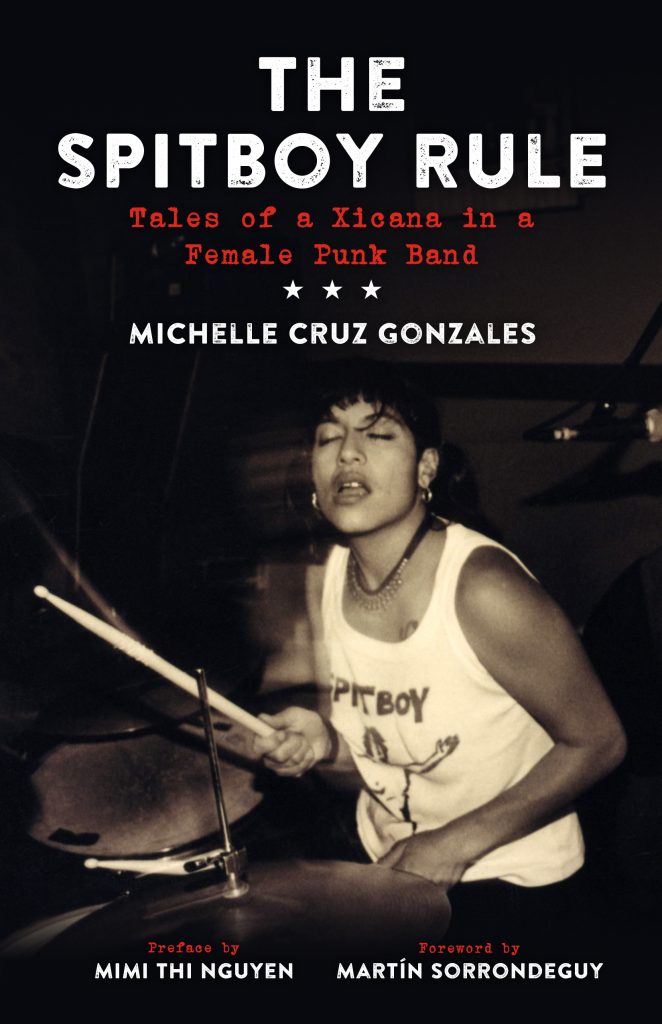by Luther Blissett
Freedom News.UK
October 19th, 2018
Spitboy was a Bay Area hardcore band active in the ‘90s. They sported an all-female lineup, a rarity in a scene long known just as much for being a hotbed of testosterone as for being the hotbed of creativity that produced, among other things, what became known as “alternative” rock.
Though they intentionally didn’t affiliate themselves with the then-nascent riot grrrl collective of bands, they did cover much of the same lyrical territory and beyond—misogyny, racism, sexism, rape culture. They simultaneously tried to navigate their existence in a scene that—despite its best intentions—continues to struggle with the fact it’s often little more than a microcosm of the greater society to which it strives to provide an alternative.
Gonzales, then known as “Todd Spitboy,” was the band’s drummer and one of its lyricists. The book is more memoir than a linear autobiography. Gonzales writes of her formative years in a small Northern California town, her discovery of punk, her move to the San Francisco area, her early musical endeavors, and the life of Spitboy, from formation to dissolution. Each episode is delivered in chapters that sometimes mirror the assorted photographs peppered throughout the book. They are short impressions that both document a given moment in time and contribute to a greater thematic thread.
While her story is of note in and of itself, Spitboy Rule is particularly affecting when she speaks of being a person of color within the punk scene, and the only person of color in her band. Recounting numerous awkward moments within the context of both, she talks of first trying to bury and supplant her ethnicity with that of a punk. She then rediscovers and embraces that ethnicity and its accompanying social class when it pops up and causes some uncomfortable situations between her, her peers, and her bandmates. Gonzales addresses the subject with candor and understanding. She raises some interesting questions in the process with a voice that is clear, singular, and introspective while never losing sight of the bigger picture and her place within it.
Included are pieces by Professor Mimi Thi Nguyen and Los Crudos vocalist Martin Sorrondeguy, who deftly provide context about Gonzales, Spitboy, and the time and world they inhabited. All told, The Spitboy Rule is a highly recommended read for anyone interested in gender/ethnic studies, Spitboy, the punk scene in which it existed, the often contradictory and landmine-ridden political climate of that scene, or simply a memoir about living an extraordinary life during an extraordinary moment in America’s musical timeline.







